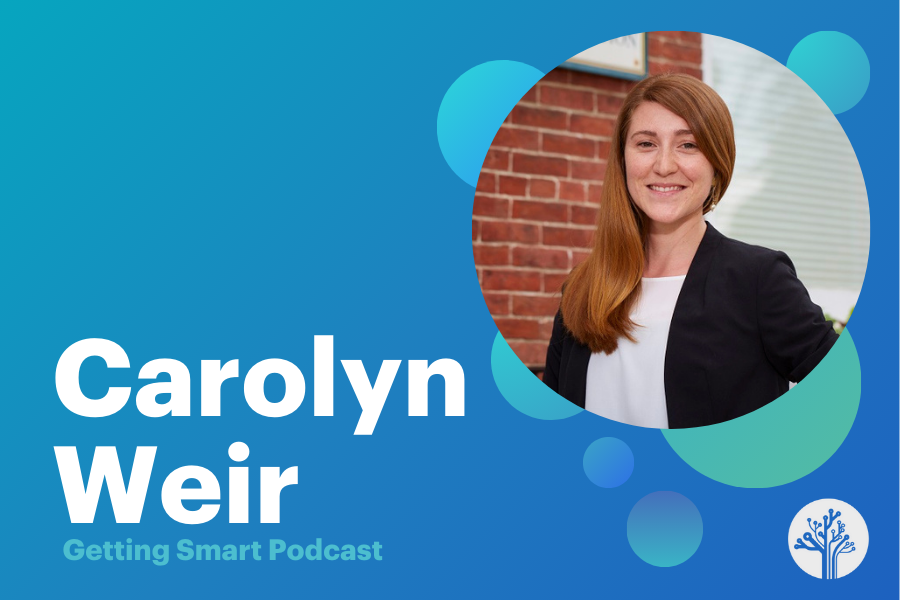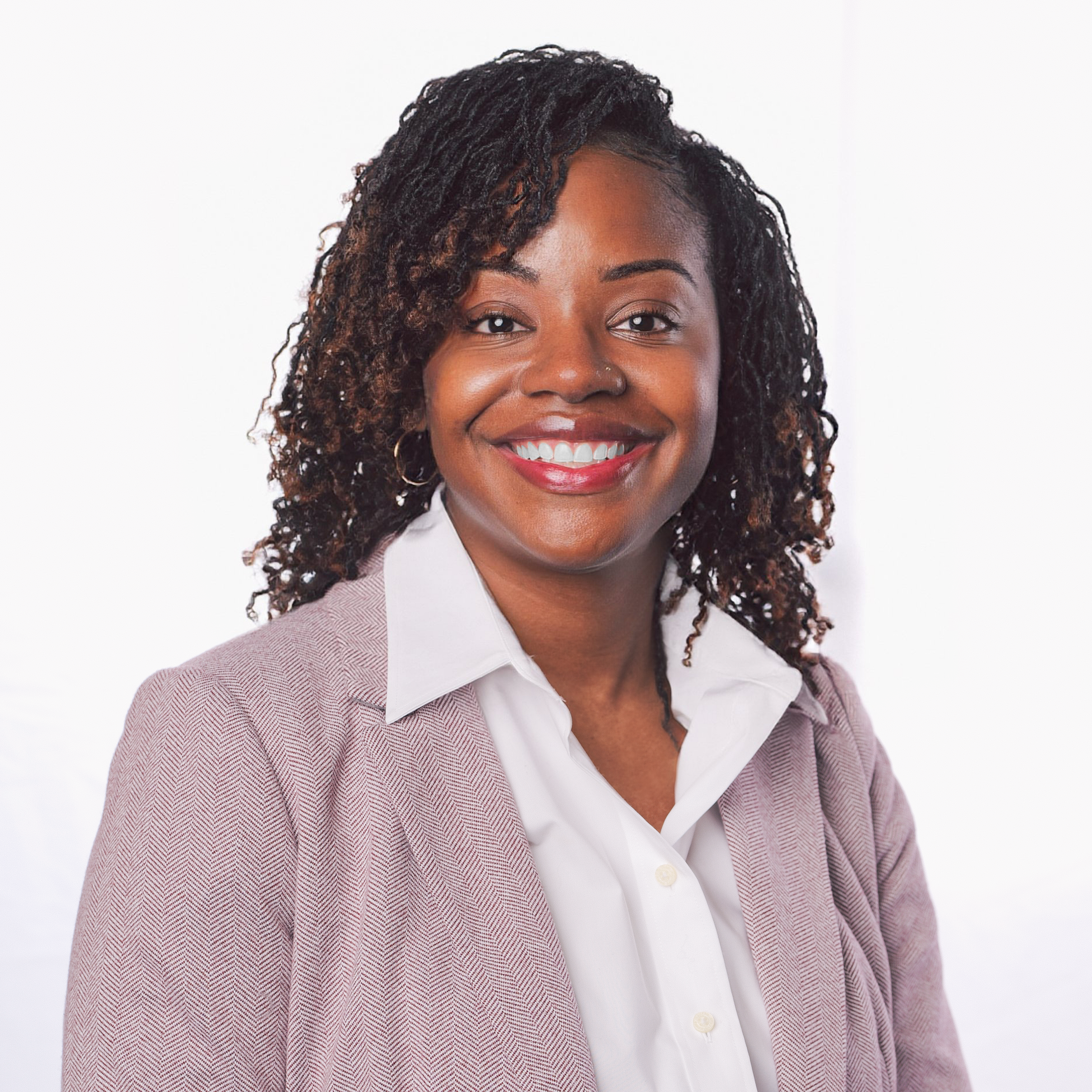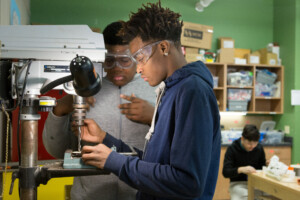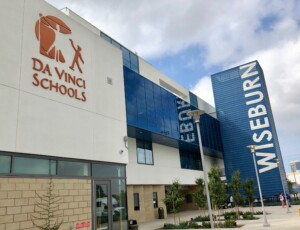Carolyn Weir on Philanthropies as Intermediaries and a Radical 13th Year Promise
Key Points
-
Accelerated pathways like Vermont’s Free Degree Promise offer significant benefits, especially for students from rural and underserved communities, by making post-secondary education accessible and debt-free.
-
Successful implementation of such programs relies on strong partnerships among K-12 education, higher education, state government, and philanthropy, ensuring sustainable and equitable access to education and career opportunities.

Outline
- Introduction and the Blurring Boundaries Between Education and the Workforce
- Vermont’s Free Degree Promise and Its Impact on Rural Students
- Measuring Success and Inclusivity
- Success Stories and Student Motivations
- Challenges and Future Plans for the 13-Year Promise
Introduction and the Blurring Boundaries Between Education and the Workforce
In this episode of the Getting Smart Podcast, Shawnee Caruthers is joined by Carolyn Weir, the Executive Director of the McClure Foundation. Carolyn has been a pivotal figure in promoting educational and workforce development in Vermont. She stepped into her role as Executive Director in 2019 after supporting the McClure Foundation’s philanthropy since 2011 through various positions at the Vermont Community Foundation. With a background in social justice and community development, Carolyn brings a wealth of experience and passion to her work. She holds a Nonprofit Management Certificate from Marlboro College and a Bachelor of Arts degree in international politics and economics from Middlebury College.
Together, they discuss the blurred boundaries between high school, higher education, and the workforce. By integrating work-connected learning into high school curricula, this episode explores how such initiatives can bridge the gap between education and employment. As the pace of change accelerates, the need for adaptable, skilled workers has never been greater. The conversation highlights how programs like Vermont’s Free Degree Promise, driven by Carolyn and the McClure Foundation, are setting students up for future success by making education more relevant and accessible.
Shawnee Caruthers: You’re listening to the Getting Smart Podcast. I’m Shawnee Caruthers. The traditional boundaries between high school, higher education, and the workforce are blurring. Integrating work-connected learning into high school curricula can bridge the gap between education and employment, making learning more relevant and engaging while setting students up for success in their future careers.
So why is this conversation so important right now? As the pace of change accelerates, the need for adaptable, skilled workers who are ready to meet the demands of the modern economy has never been greater. Our students deserve an education that prepares them for the realities of the workforce and empowers them to reach their full potential.
Today, we’re joined by Carolyn Weir, Executive Director of the McClure Foundation, and a driving member of the Vermont Accelerate Ed cohort supported by the Bill and Melinda Gates Foundation. Accelerate Ed is built on the idea that high schools can provide early access to quality higher education in ways that incorporate work-connected learning, which can have long-term benefits for students.
This initiative helps state-based groups plan and build accelerated pathways between K-12 education, post-secondary education, and careers. Welcome, Carolyn.
Carolyn Weir: Hi, Shawnee. Great to be here with you.
Vermont’s Free Degree Promise and Its Impact on Rural Students
Shawnee Caruthers: So first, could you start by giving us an overview of the McClure Foundation’s 13-year promise?
Carolyn Weir: Sure. So, Vermont’s Free Degree Promise is basically a fast-tracked pathway to a debt-free degree for all Vermont high school students. It builds on the state of Vermont’s long-time Early College Program for high school seniors. Since 2013, the state’s Early College Program has been giving high school seniors in our state a jumpstart on their college pathways with a free year of college in lieu of a traditional senior year of high school. So, for any student in Vermont who completes that program at the Community College of Vermont, we promise a second year of free college along with living stipends and enhanced advising. We made this promise to the Vermont high school classes of 2023 through 2026 because we really see the potential. Fast-track debt-free pathways are a game changer for young people, especially those furthest from opportunity.
Shawnee Caruthers: So, as you think of the students who are really diving into this opportunity, what is their motivation? How are you getting them to buy into the 13-year promise?
Carolyn Weir: In order to answer that question, I should probably tell you a little bit about Vermont and the McClure Foundation. By a lot of measures, Vermont is the most rural state in the country. We have 65 percent of students living in rural areas, and 76 percent of the state’s 9th through 12th-grade students attend rural high schools.
For a long time, Vermont’s college continuation rates among high school graduates have been the lowest in New England, and that’s true no matter how you slice it. It’s true in the aggregate and among populations of students who stand to benefit the most from a post-secondary credential. Low-income students, students of color, students with disabilities, and male students are all among those populations who are facing the deepest equity gaps in terms of continuation rates. Our partners at the Vermont Student Assistance Corporation conduct aspiration surveys among high school students about their plans and hopes for life after high school. The data this year signals some rapid declines in college aspirations among youth since 2020, especially among young men who would be the first in their family to pursue college. There are a lot of headwinds that compel the McClure Foundation to think about how we can support young people of transition age as they plan and prepare for life after high school.
We are a long-time affiliate of the Vermont Community Foundation, and as a part of the family of funds and foundations there, we do our part to close opportunity gaps in Vermont by making post-secondary education the easy choice for Vermonters, especially young Vermonters approaching high school graduation day. In all of our work, we try to improve the pathways that lead to Vermont’s most promising jobs through education and training. Vermont has many enabling conditions that make accelerated pathways, starting in high school and putting students on paths to public career-connected post-secondary education, a great investment. That’s been our focus for the past decade, and we’re doubling down on that mission.
As a philanthropic organization, we fund good ideas and support them until they reach a point of successful scale. Then, we help communicate their impact and insights to inform the systems that support schools and students. Sometimes that looks like public policy or new public perception, or a well-scaled program. Over the years, we’ve worked on issues like incarcerated education and innovative pathways to teacher licensure, especially in rural parts of Vermont. But the cornerstone of our work right now is this Free Degree Promise because we believe young people deserve to see their futures in Vermont as destinations of value, and that college is within reach for them.
Measuring Success and Inclusivity
Shawnee Caruthers: I appreciate this conversation. Often, we forget that students in rural communities are also among those furthest from opportunity. The opportunities you’re providing give them more access. Was this your true motivation for the foundation to launch this initiative, or was there something else? And, how many students are going through this program annually?
Carolyn Weir: That’s a big part of our motivation, right? We approach our work with the belief that rural is an asset, especially for youth development, making young people feel seen and supported. Vermont has many enabling conditions to support building these accelerated pathways. We have a resourced public K-12 education system, long-standing policies supporting flexible and accelerated pathways to high school graduation, a community college with 12 locations statewide, a history of online learning, and a decade of experience serving high school students.
As part of the Vermont Community Foundation’s strategic framework, college and career training equity is central to our goals, especially accelerated pathways. Through our Free Degree Promise, we’ve seen about 235 students enroll in the program annually. These students come from over 90 percent of Vermont’s high schools, marking a 70 percent increase in early college enrollment since the promise was announced. We’re seeing significant increases in enrollment from low-income students, students of color, and first-generation students, who stand to benefit the most from a credential. This gives us confidence. Additionally, being part of the National Accelerate Ed community, supported by the Bill and Melinda Gates Foundation, has affirmed that our strategy is being recognized nationally as a way to support youth development, youth success, and educational equity.
Success Stories and Student Motivations
Shawnee Caruthers: I love how you’re measuring aspirations and hope, and how committed you are to encouraging young people to stay in Vermont and value their place. It seems like you’re also emphasizing pathways that lead to high-paying, in-demand jobs. Could you discuss how these pathways were selected? And what role did Vermont’s Most Promising Jobs Campaign play in shaping those decisions?
Carolyn Weir: The team that participated in this Accelerate Ed initiative included K-12 and higher ed partners, state government, and philanthropy. We came together to identify core values, one of which was that rural is an asset. Another key value was universality. All students are eligible for the Free Degree Promise, including undocumented students. Additionally, students can choose any degree program at the Community College of Vermont (CCV), which offers 12 degree programs that are aligned with labor market needs.
We believe that students need the agency to choose the career pathways that interest them. Vermont already has strong pathways to critical occupations like nursing. This initiative is intended to show that college is within reach for all students, regardless of the degree program they choose. For example, Vermont is projected to have over 2,500 accountants and auditors in the next ten years, with a median salary of about $70,000 a year. The associate degree in accounting is a solid credential that can lead to CPA certifications and higher-paying jobs in finance.
When thinking about associate degrees as the credential of choice in this pathway, it’s important to note that Vermont has seamless transfer pathways to bachelor’s degrees, and this promise helps lower the cost. Additionally, national research has shown that associate degree graduates in Vermont are most likely in the country to achieve a positive return on investment. So, we’ve made the Community College of Vermont a cornerstone partner, and we’re proud to support community colleges, which have historically been underfunded but serve students furthest from opportunity.
Challenges and Future Plans for the 13-Year Promise
Shawnee Caruthers: It sounds like inclusivity is at the heart of everything you do. You mentioned that this program is also available to undocumented students. How important are partnerships in the success of the 13-Year Promise?
Carolyn Weir: Partnerships are huge. I’ve been encouraged to see the structure of this national accelerated learning community, where local partners are invited to work together. The McClure Foundation happens to be the intermediary here in Vermont, but we collaborate closely with public higher ed, K-12, state government, and other philanthropies.
Philanthropy can play an important role as a convener and connector, especially in developing and scaling accelerated pathways. Community foundations are uniquely positioned to have deep insights into local needs and opportunities, allowing them to take risks and nurture systems capacity and readiness. In Vermont, we’ve seen this play out in both flood response and in the development of accelerated pathways, as we navigate the complex systems of K-12, higher ed, and workforce development to create workable solutions for students.
Shawnee Caruthers: It sounds like you’re using your partnerships and data-driven insights to make an impact. But, I’m sure this work comes with its challenges. Could you share some of the challenges the foundation has faced in implementing the 13-Year Promise, and how you’ve overcome them?
Carolyn Weir: That’s a great question. We’ve learned a lot along the way. One of the first challenges we encountered was assuming what young people want and need. This particular cohort, coming out of the pandemic, was making a brave choice by opting for a non-traditional pathway during their senior year. The cohort is geographically distributed, drawing from over 90 percent of Vermont high schools, so many students were participating in distance or hybrid learning. As a result, some students expressed a desire for a stronger culture of belonging.
In response, we’ve worked with the Community College of Vermont to invest in building a sense of community for these students. We’ve also learned that we need to use the right messages and messengers when promoting these pathways, especially to the populations that stand to benefit the most. For example, we found that near-peer ambassadors are incredibly effective. In year two of this initiative, we created work-study positions for current students to serve as student ambassadors, providing candid advice to their peers about the benefits and challenges of the program.
Shawnee Caruthers: If you have great ambassadors, I’m sure you have some great student success stories. Could you share one or two?
Carolyn Weir: Absolutely. One student that comes to mind is Donovan. He’s from a small town near the Canadian border with only one grocery store, which is managed by a regional health nonprofit. Donovan worked at the grocery store as a high schooler and was encouraged by his school counselor to consider the early college program at CCV because he excelled in math and had exhausted his high school’s math courses. Although nervous at first, Donovan eventually embraced the opportunity. He enrolled in early college and began his degree in accounting. He interned with the nonprofit’s accounting team, creating a valuable connection between his part-time job and his learning. Donovan completed his early college year and is on track to earn his degree debt-free by age 19, which he described as a “big win.”
Another student, Lucas, is a New American who also completed his early college year. Initially, he hesitated because he loved high school and wasn’t sure he wanted to leave that experience behind. However, he chose early college, saying, “Your older self is going to be so proud of your younger self for taking the chance.” He found that early college gave him the opportunity to shape his future self, which resonates with the goals of the Flexible Pathways initiative in Vermont.
Shawnee Caruthers: I love the idea of taking a student’s current job and expanding it into an internship. It’s so smart and seamless. As you look ahead, what do you see for the future of the 13-Year Promise? Are there any plans for expansion or modification based on the data you’ve collected?
Carolyn Weir: Our focus on continuous improvement is key. We work closely with our partners to assess how the program is working and make adjustments as needed. Two main goals have emerged from our participation in the Accelerate Ed community. The first is equitable scale, ensuring that participation continues to grow among low-income students, students of color, first-generation students, and young men. Historically, about 70 percent of the students enrolling in these pathways have been young women, so we’re looking at ways to build pathways that better serve their male peers.
The second goal is sustainability. Our commitment is currently set for five years, through the Vermont high school class of 2026. If the initiative proves successful, we hope the state will take notice and make the Free Degree Promise permanent with a commitment from its general fund. This is a high-leverage opportunity that builds on early college and relies on state and federal funding, so it would only take a minimal investment to keep these fast-tracked degrees within reach for Vermont’s young people.
Shawnee Caruthers: As Vermont’s program grows, I’m sure other states will take notice. Based on your experience, what advice would you give other states or organizations looking to implement similar programs?
Carolyn Weir: I really believe in the Accelerate Ed approach of finding a strong intermediary who can manage functions like research, strategy setting, and consensus building. Starting with enabling conditions is also important. We’ve gained so much by focusing on the positive conditions that exist in Vermont and identifying core values that guide our work, such as rural as an asset and universality. By maintaining a positive, hopeful outlook, we’re creating the conditions for young people to feel hopeful about their futures as well.
Shawnee Caruthers: Thank you. I just want to say Donovan and Lucas’s names one more time because keeping young people at the center of the work is crucial. Thank you for sharing their stories and for telling us about the 13-Year Promise and the great work Vermont is doing to ensure inclusive education for all learners. Thank you for joining us today, Carolyn, on the Getting Smart Podcast.
Carolyn Weir
Carolyn Weir is the McClure Foundation’s first dedicated staff person. She stepped into the role of executive director in 2019 after supporting the McClure Foundation’s philanthropy since 2011 via her staff roles with the Vermont Community Foundation. At the McClure Foundation, Carolyn leads the effort to promote philanthropic best practices and alignment that strengthen Vermont’s education and workforce development systems and outcomes. Prior to joining the Community Foundation, she worked for a variety of social justice and community development organizations. Weir holds a Nonprofit Management Certificate from Marlboro College and a Bachelor of Arts degree in international politics and economics from Middlebury College. She lives in Weybridge with her husband and son.
Links









0 Comments
Leave a Comment
Your email address will not be published. All fields are required.